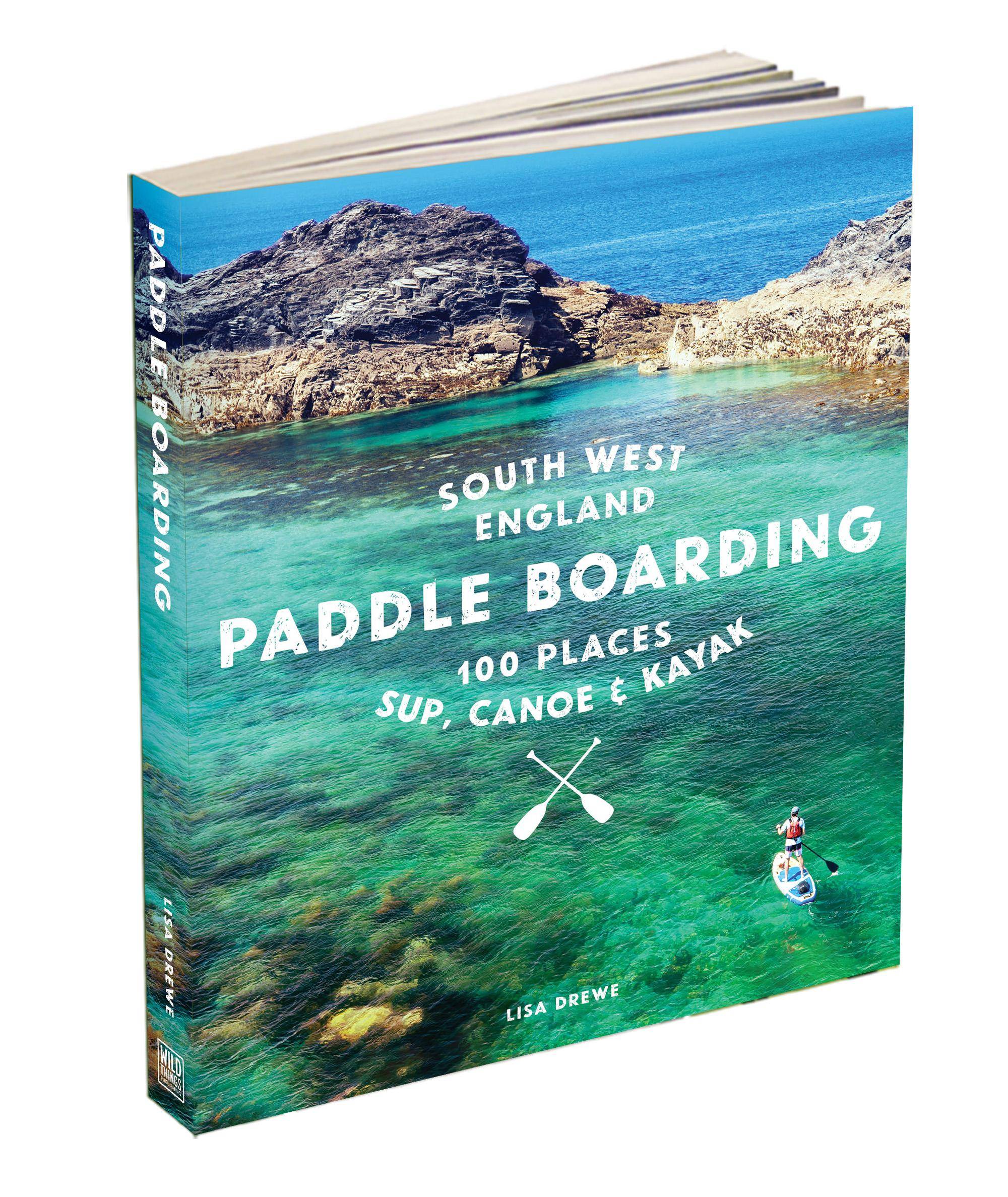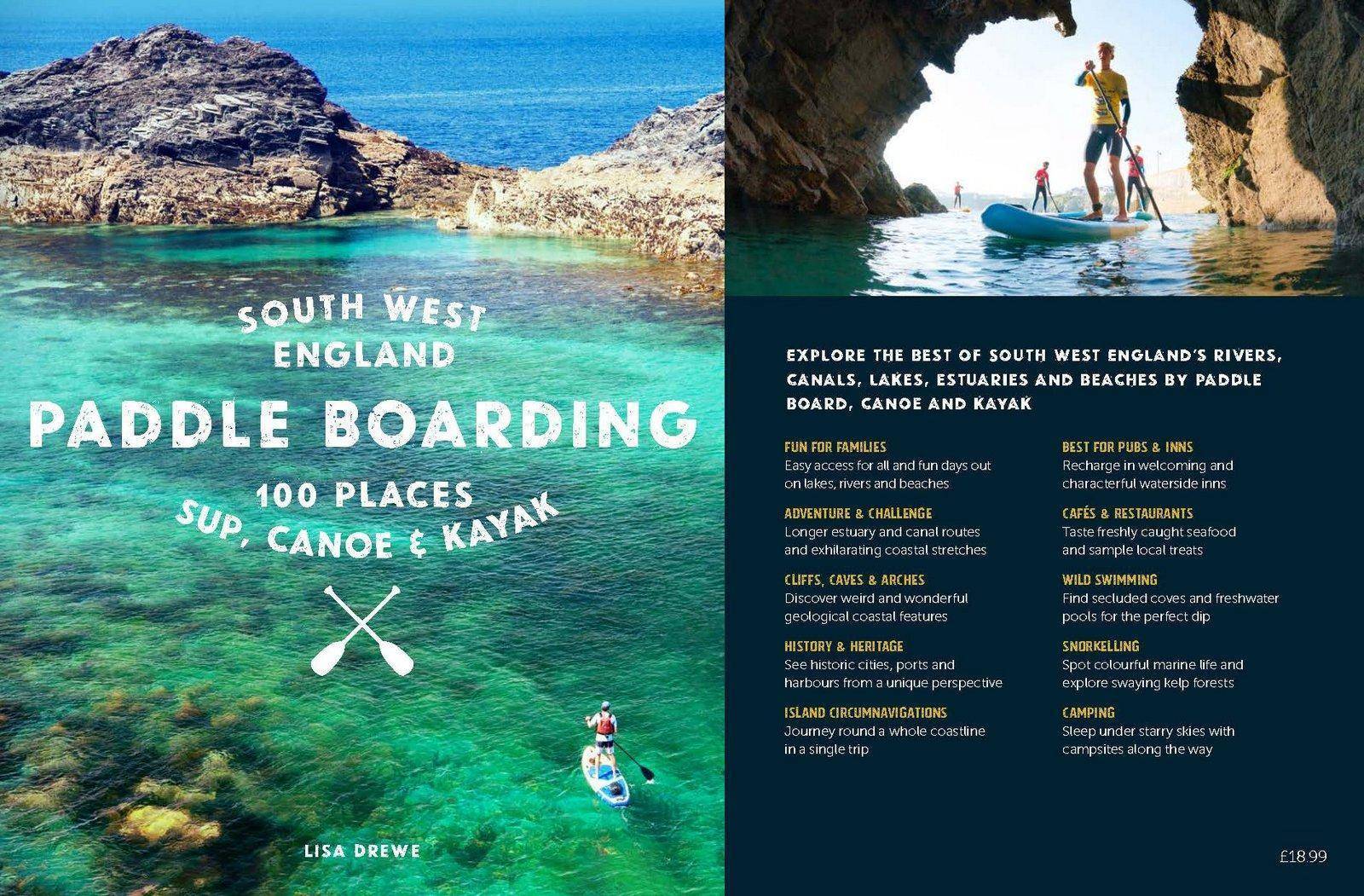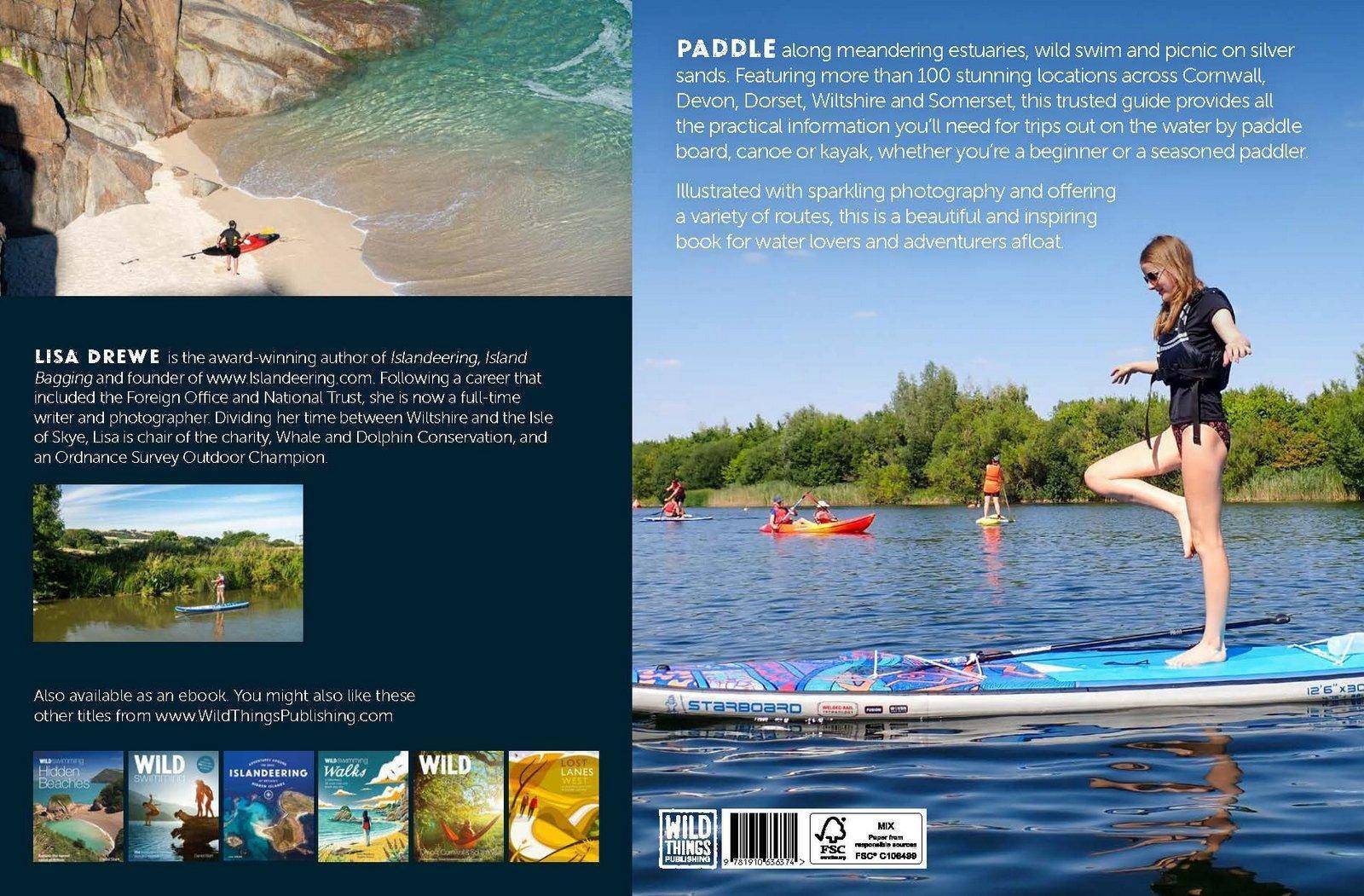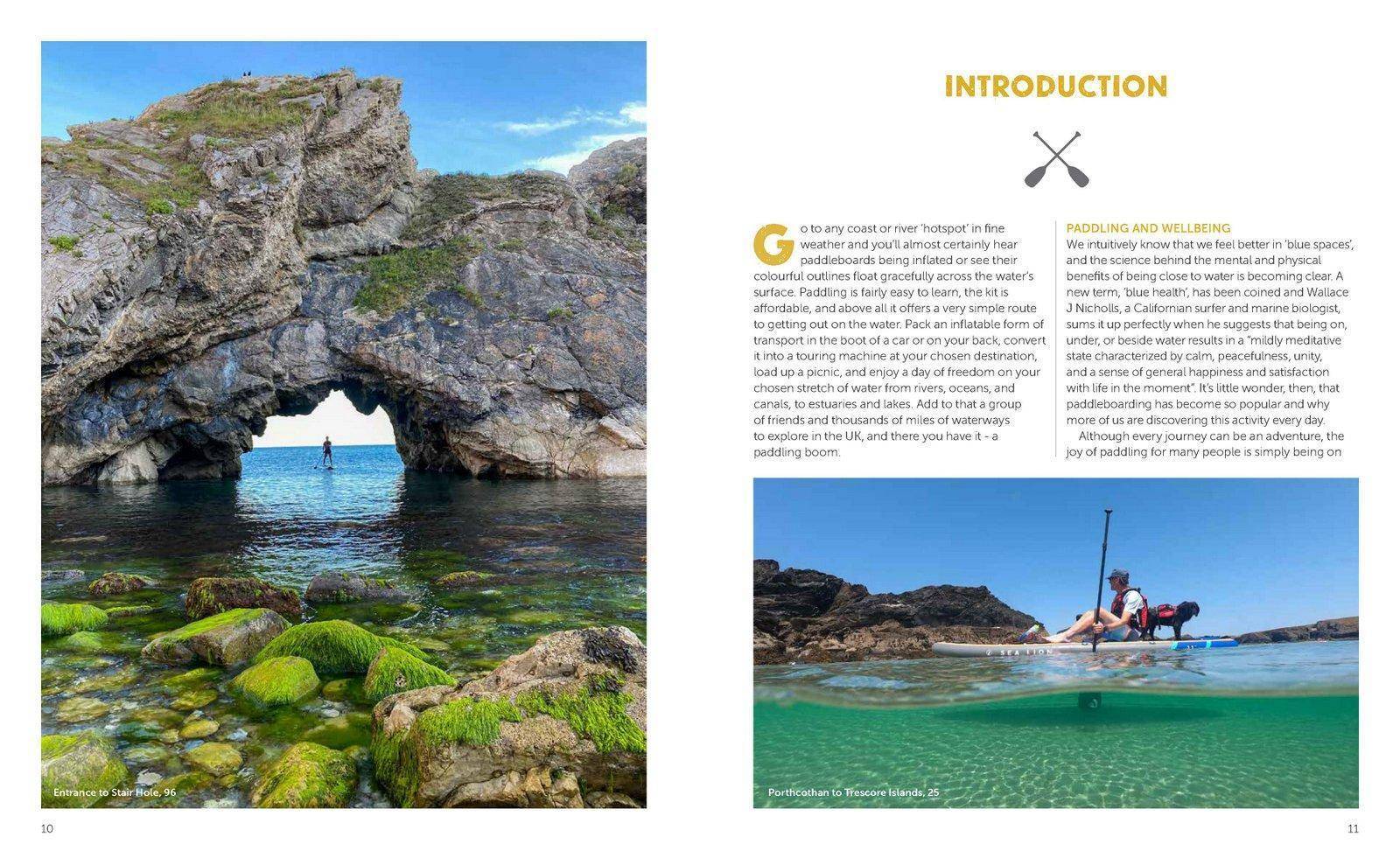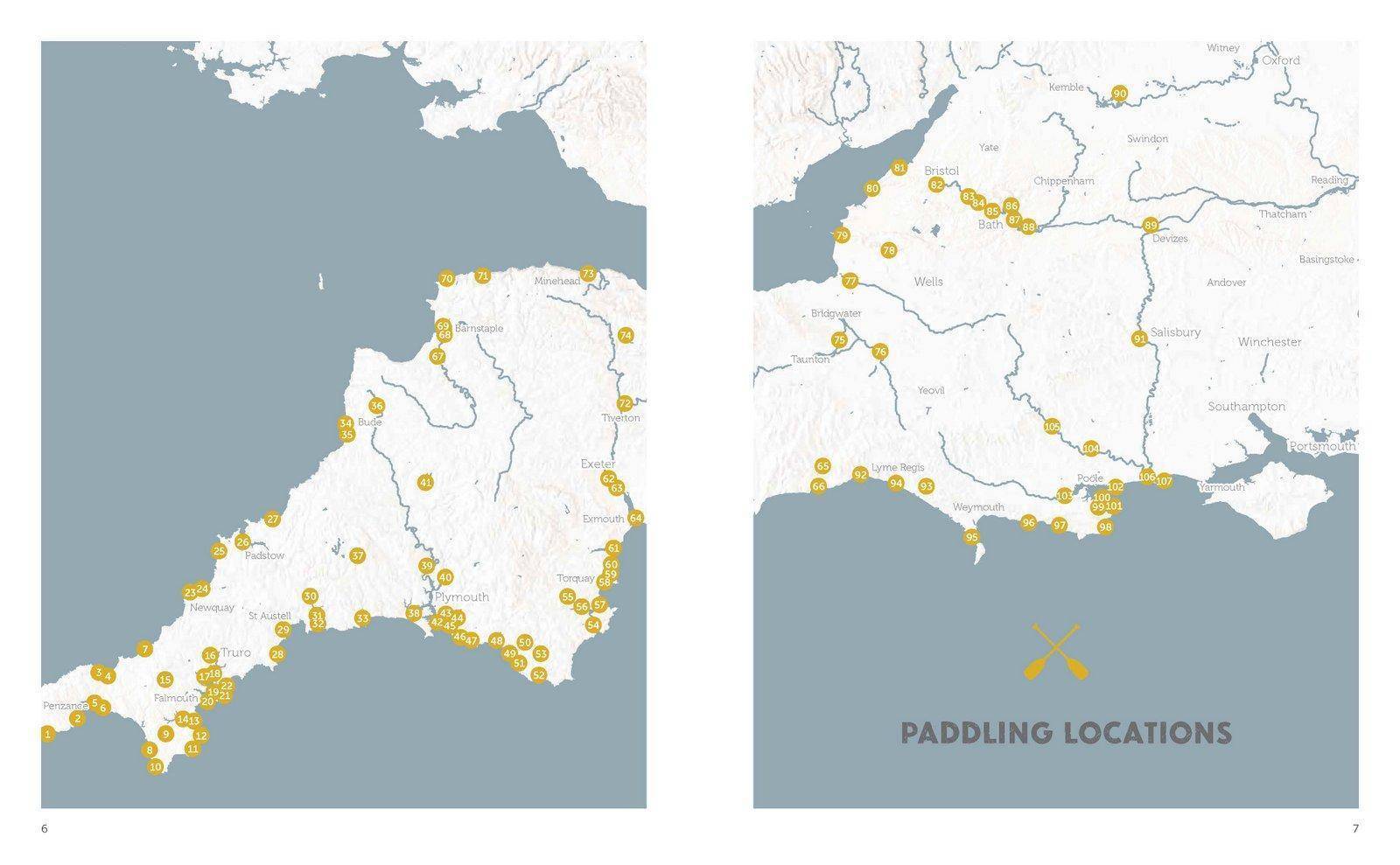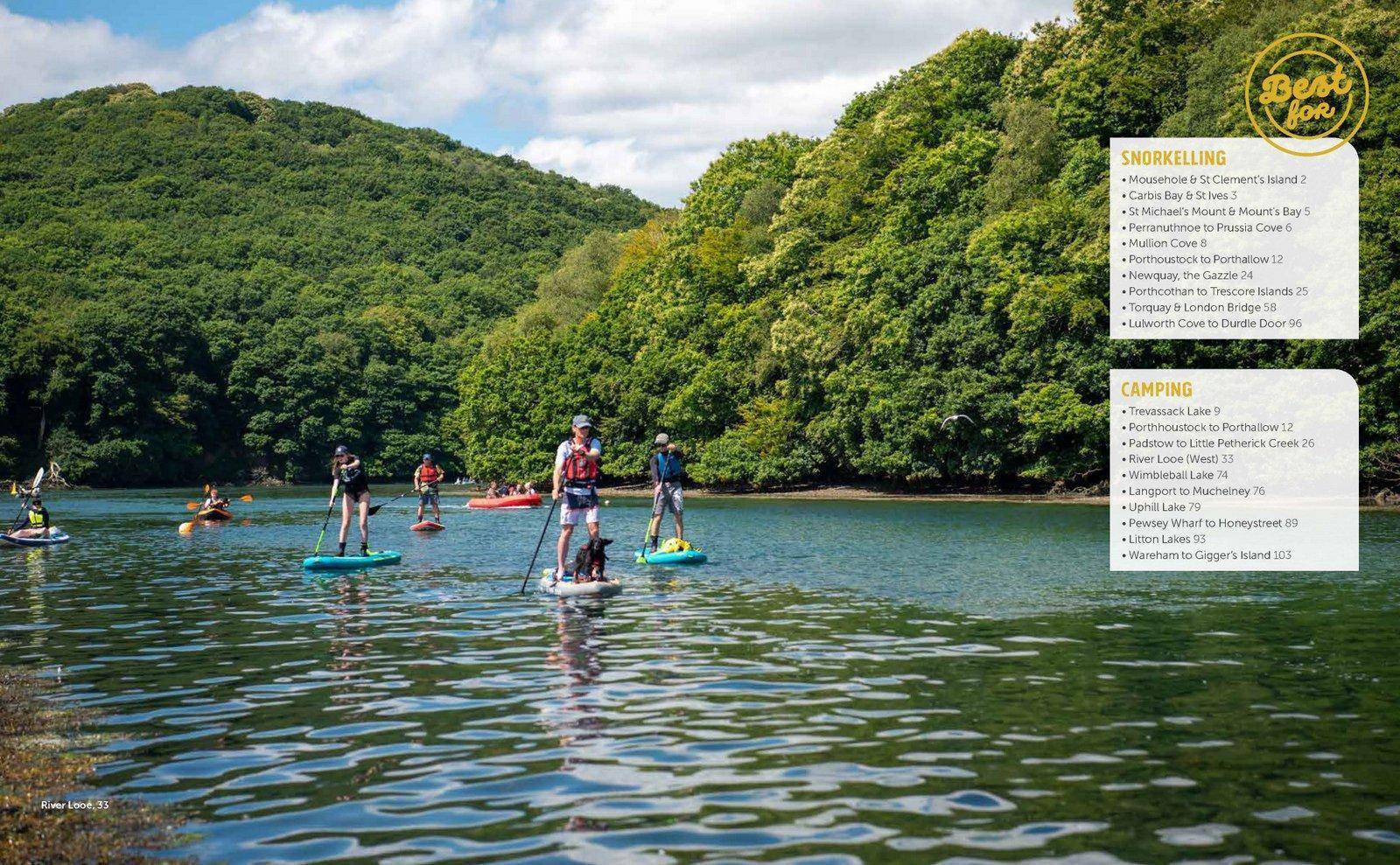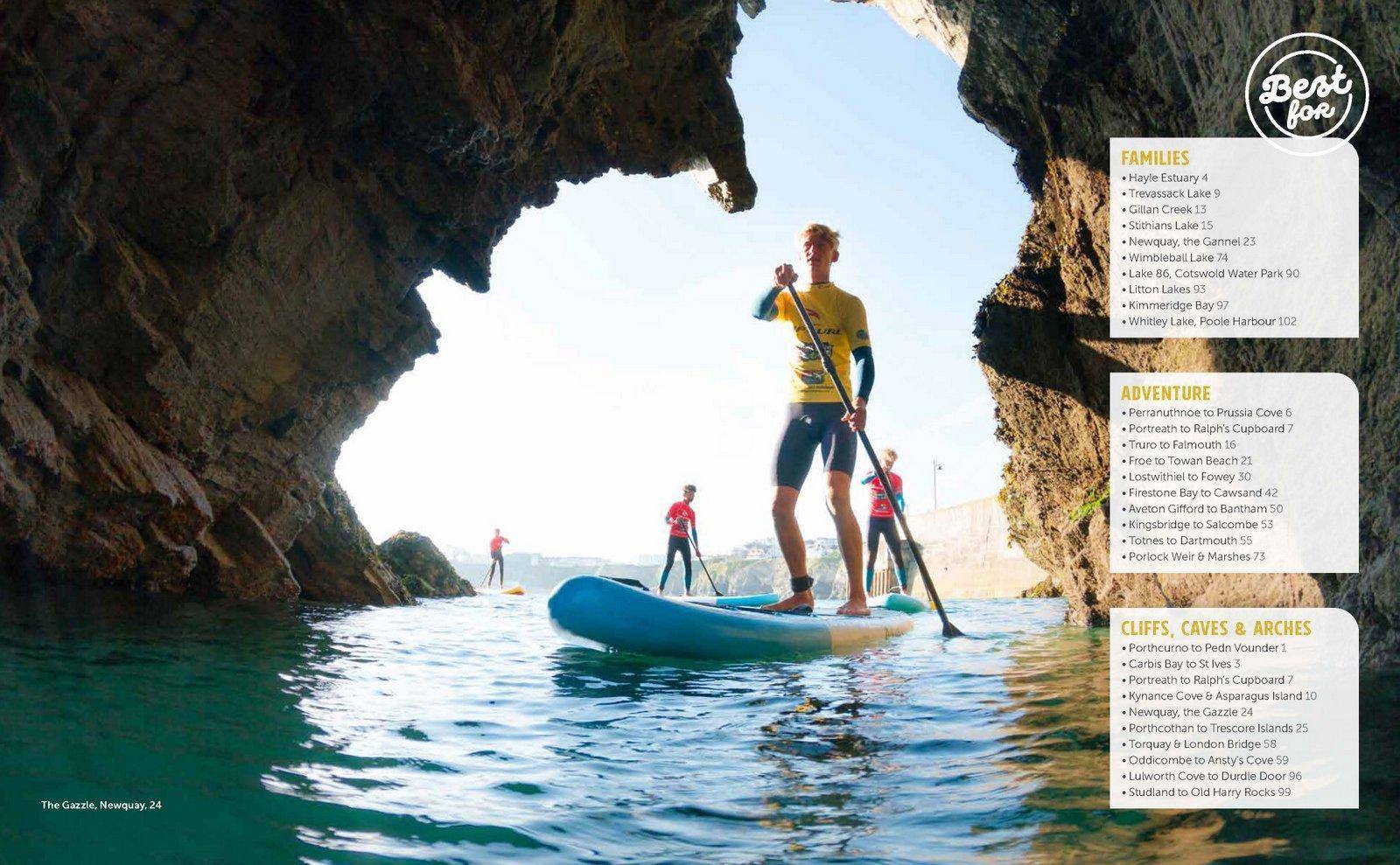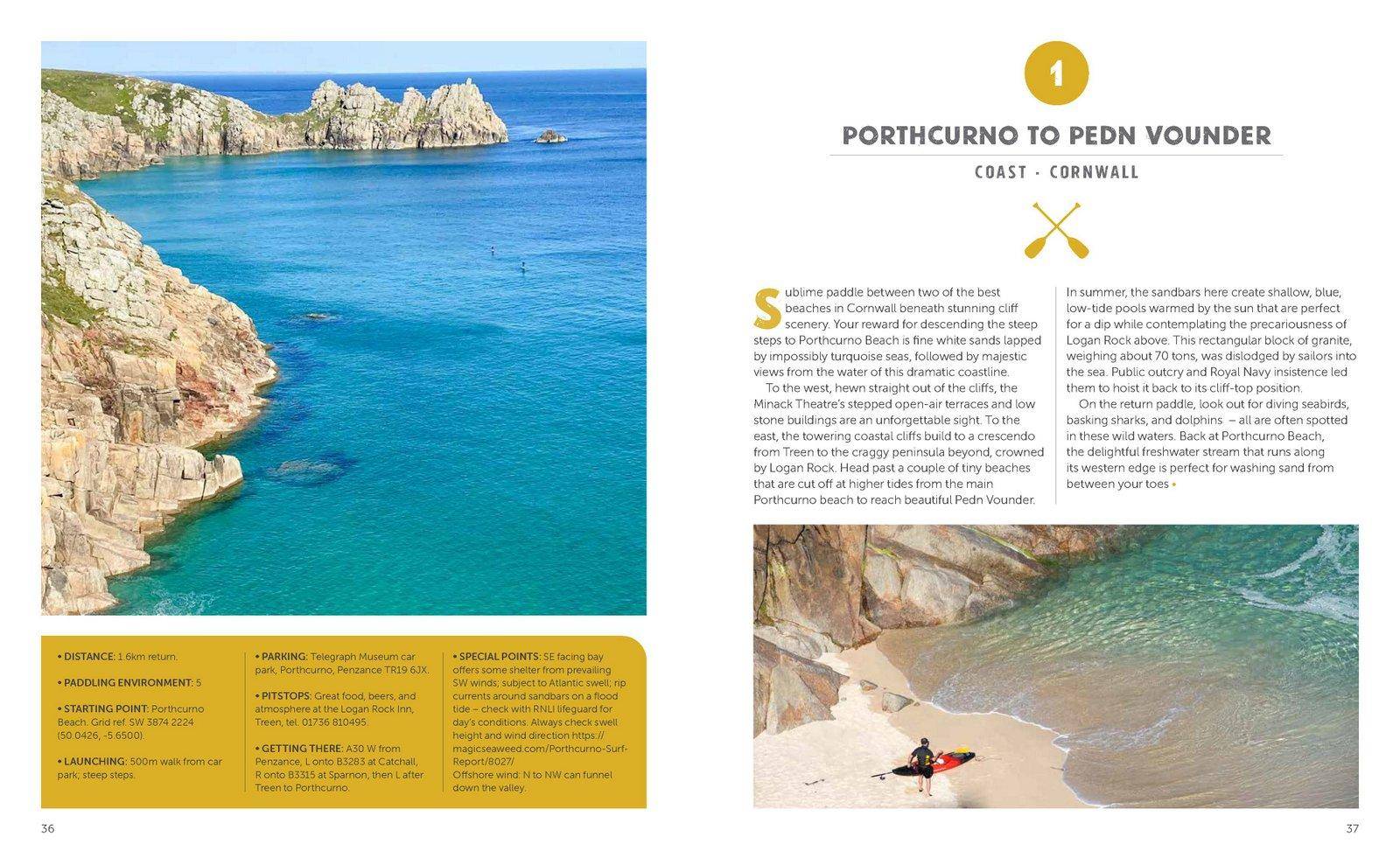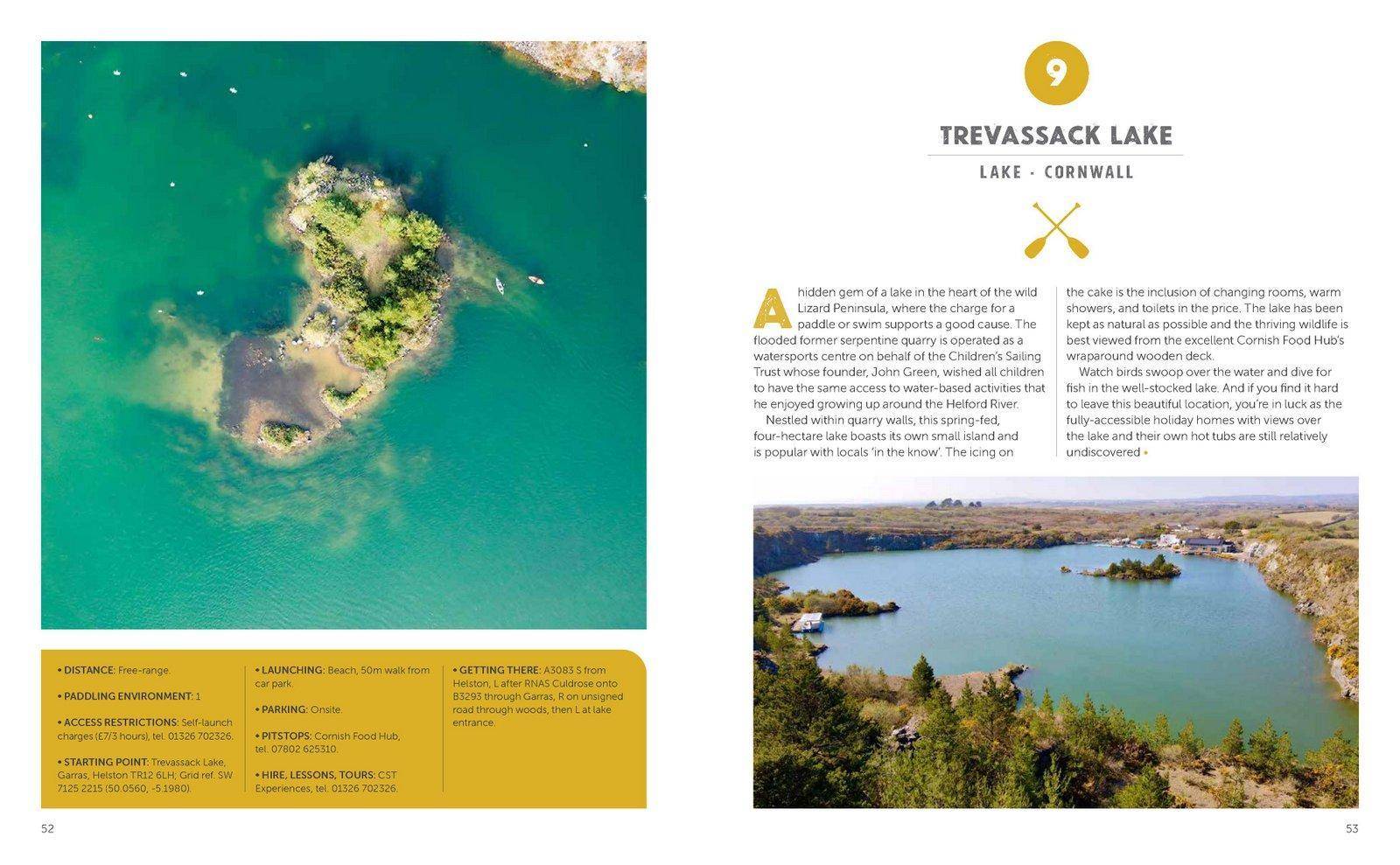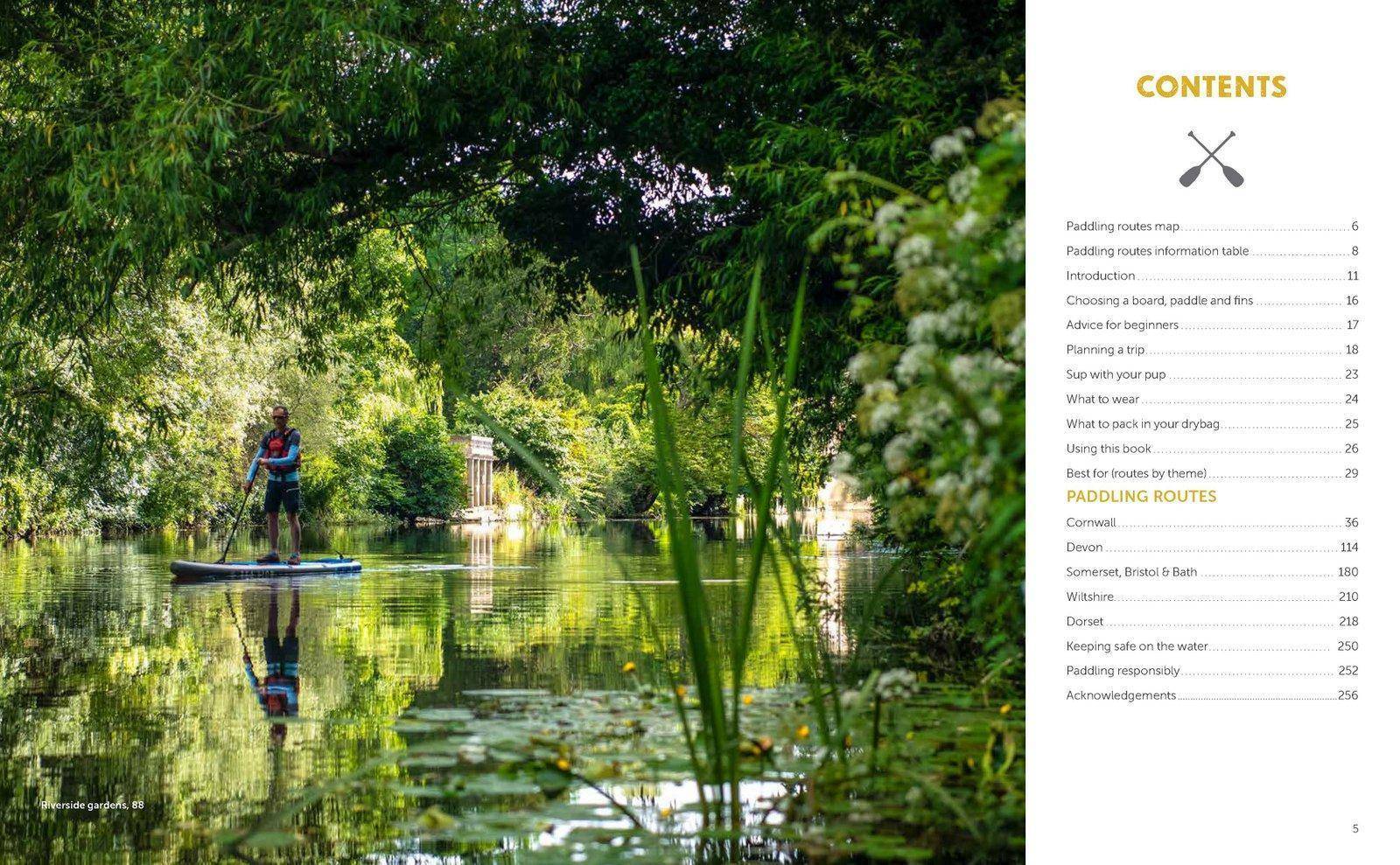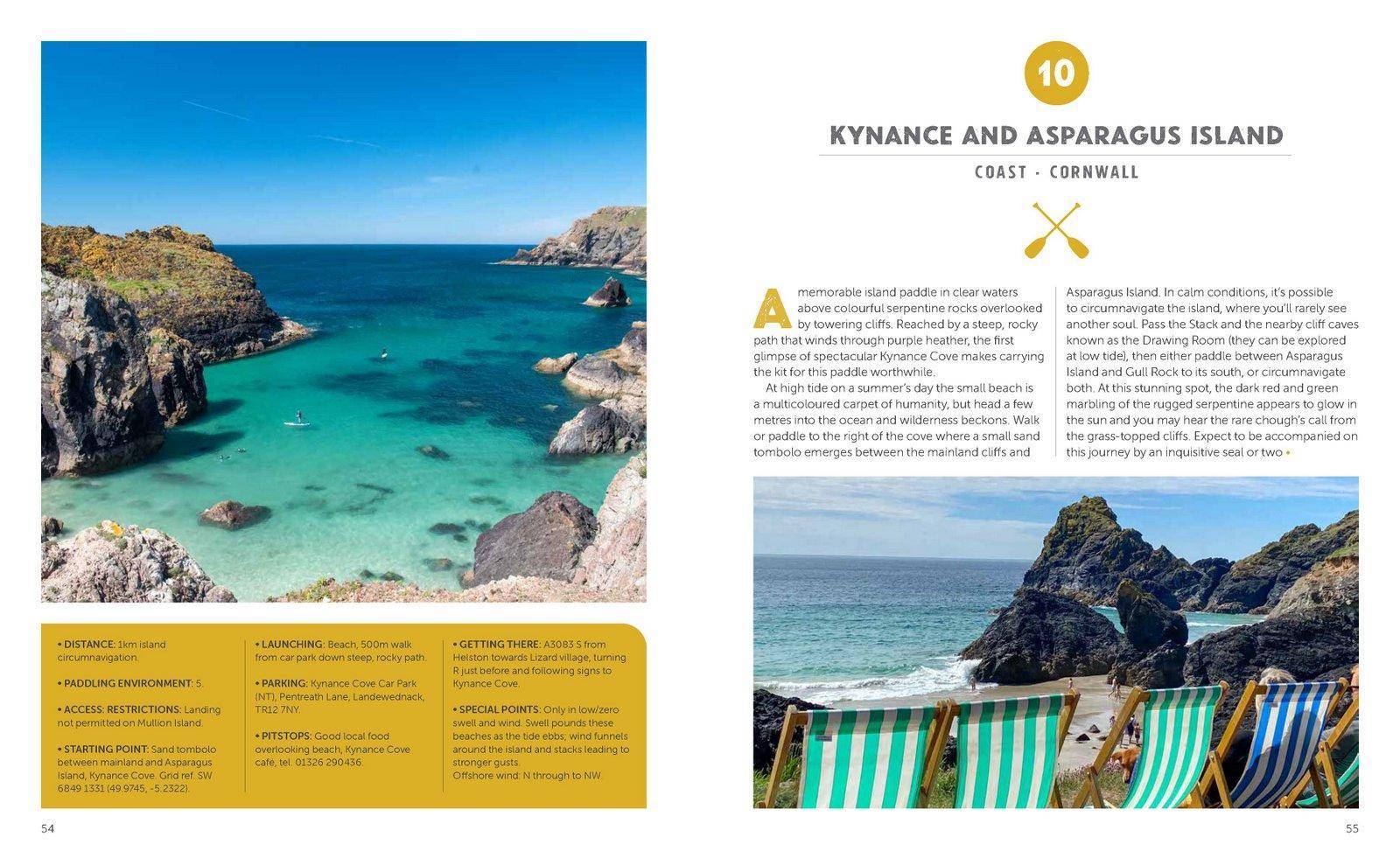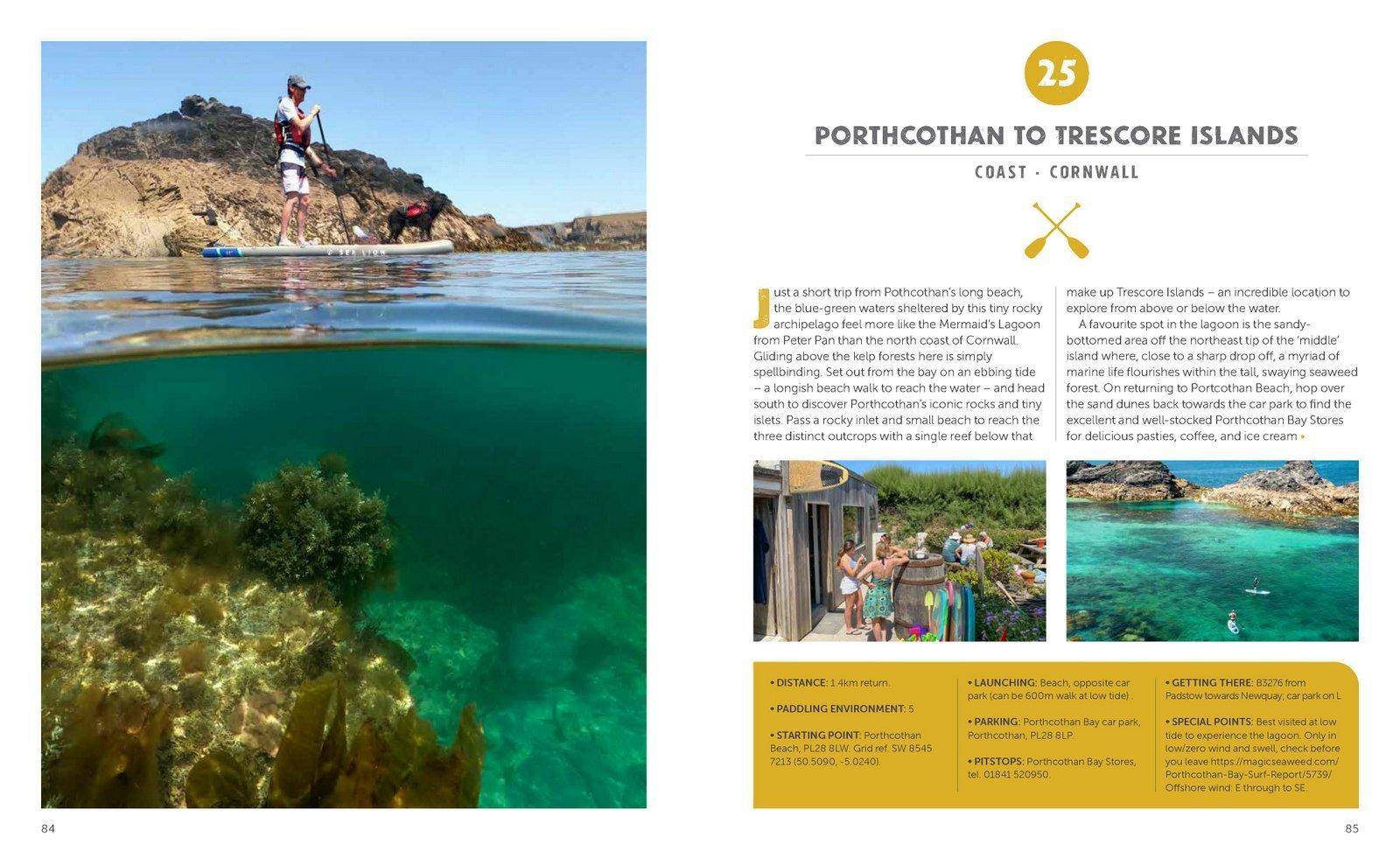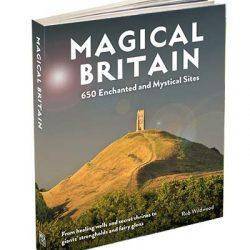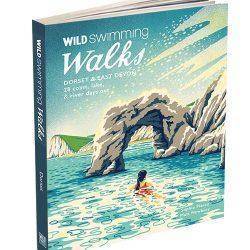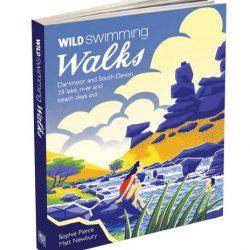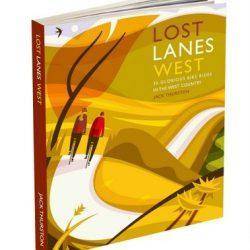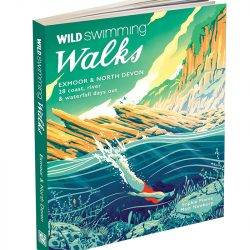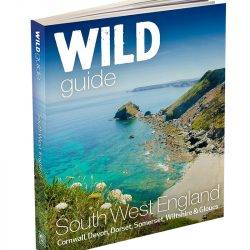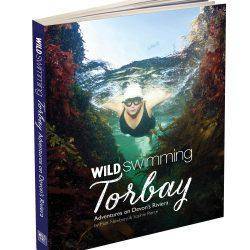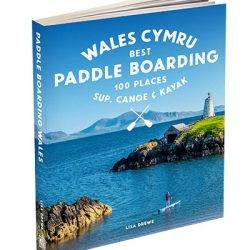From Lisa Drew, author of Paddle Boarding Wales and Islandeering comes….
Explore the best of South West England’s rivers, canals, lakes, estuaries and beaches by paddle board, canoe and kayak
Paddle along meandering estuaries, wild swim and picnic on silver sands. Featuring more than 100 stunning locations across Cornwall, Devon, Dorset, Wiltshire and Somerset, this trusted guide provides all the practical information you’ll need for trips out on the water by paddle board, canoe or kayak, whether you’re a beginner or a seasoned paddler.
Illustrated with sparkling photography and offering a variety of routes, this is a beautiful and inspiring book for water lovers and adventurers afloat.
Paddle Boarding Top Picks
Fun For Families
Easy access for all and fun days out on lakes, rivers and beaches
Adventure & Challenge
Longer estuary and canal routes and exhilarating coastal stretches
Cliffs, Caves & Arches
Discover weird and wonderful geological coastal features
History & Heritage
See historic cities, ports and harbours from a unique perspective
Island Circumnavigations
Journey round a whole coastline in a single trip
Best For Pubs & Inns
Recharge in welcoming and characterful waterside inns
Cafés & Restaurants
Taste freshly caught seafood and sample local treats
Wild Swimming
Find secluded coves and freshwater pools for the perfect dip
Snorkelling
Spot colourful marine life and explore swaying kelp forests
Camping
Sleep under starry skies with campsites along the way
About the author
Lisa Drewe is the award-winning author of Islandeering, Island Bagging and founder of www.Islandeering.com. Following a career that included the Foreign Office and National Trust, she is now a full-time writer and photographer. Dividing her time between Wiltshire and the Isle of Skye, Lisa is chair of the charity, Whale and Dolphin Conservation, and an Ordnance Survey Outdoor Champion.
Contents
Paddling routes map 6
Paddling routes information table 8
Introduction 11
Choosing a board, paddle and fins 16
Advice for beginners 17
Planning a trip 18
SUP with your pup 23
What to wear 24
What to pack in your drybag 25
Using this book 26
Best for (routes by theme) 29
PADDLING ROUTES
Cornwall 36
Devon 114
Somerset, Bristol & Bath 180
Wiltshire 210
Dorset 218
Keeping safe on the water 250
Paddling responsibly 252
Acknowledgements 256
Introduction to Paddle Boarding
Go to any coast or river ‘hotspot’ in fine weather and you’ll almost certainly hear paddleboards being inflated or see their colourful outlines float gracefully across the water’s surface. Paddling is fairly easy to learn, the kit is affordable, and above all it offers a very simple route to getting out on the water. Pack an inflatable form of transport in the boot of a car or on your back, convert it into a touring machine at your chosen destination, load up a picnic, and enjoy a day of freedom on your chosen stretch of water from rivers, oceans, and canals, to estuaries and lakes. Add to that a group of friends and thousands of miles of waterways to explore in the UK, and there you have it – a paddling boom.
Paddling and wellbeing
We intuitively know that we feel better in ‘blue spaces’, and the science behind the mental and physical benefits of being close to water is becoming clear. A new term, ‘blue health’, has been coined and Wallace J Nicholls, a Californian surfer and marine biologist, sums it up perfectly when he suggests that being on, under, or beside water results in a “mildly meditative state characterized by calm, peacefulness, unity, and a sense of general happiness and satisfaction with life in the moment”. It’s little wonder, then, that paddleboarding has become so popular and why more of us are discovering this activity every day.
Although every journey can be an adventure, the joy of paddling for many people is simply being on the water and engaging every one of our senses. Watch ring-like patterns form as heavy raindrops hit the water or the light dancing across a river’s surface; breathe in the ozone of the ocean, the sweet smell of river water, and enjoy the fresh taste of spring-fed lakes. The sound of a paddle dipping beneath the water’s surface, the emptying of tidal creeks heralded by the cries of wading birds looking for their next meal, the gentle song of rivers flowing on their eternal journey to the ocean. All these sensory experiences increase our ‘blue health’, and all are beloved by paddlers.
My journey
I have paddled since I was a child, my school Youth Club giving me the opportunity to learn how to kayak. I loved the thrill of shooting the Symonds Yat rapids and paddling the length of the Thames, bumping down the many weirs and hanging on for dear life in the locks (not a great idea, even though legal then). Later the camaraderie of sea-kayaking trips around the Isles of Scilly, the embarrassing sinus leaks after attempted Eskimo rolls, and the night-time training for the Devizes-Westminster canoe race were certainly character-building for my younger self and a firm foundation for later adventures.
It was on a work trip to California that I first noticed the new sport of paddle-surfing and was amazed that people could not only stand up on long boards in big waves using just a paddle as a rudder, but also move gracefully. Paddleboarding didn’t arrive in Britain until a few years later but when I tried it myself, I was instantly hooked. On recent travel projects, I’ve circumnavigated over 600 islands in the UK, mainly using kayaks and paddleboards as a means of transport, and this book is a way of sharing some of those journeys along with many more. That I should start this odyssey in the South West is no coincidence: it has been my home and holiday destination for most of my life and, to my mind, best appreciated from the water.
Connect with nature, history, and heritage
This last year spent exploring and logging local waterways has been a joy, with each route revealing surprise and beauty. There are too many experiences to mention here but among my firm favourites were paddling in the dark to watch the pinks and oranges of an emerging sunrise from Old Harry Rocks, or watching paddlers morph into dark silhouettes against the glowing red sky of another Poole Harbour sunset. I’ve had amazing wildlife encounters, including an otter swimming so close when I was paddling along the river Stour that I could see beadlets of water on its whiskers, glistening in the sun. The thrill of spotting dolphins off the north coast of Cornwall never dims, and neither does the promise of paddling with a basking shark. Spotting the beautiful colours of jellyfish, ‘flying’ above swaying green forests of kelp, marvelling at the changing shapes of starling murmurations over Somerset’s waterways, or listening to the whirr of bats at dusk as they hoover up moths are just some of the wonders I’ve experienced while paddling the UK’s waters, and these nourish the soul.
While rivers and oceans follow their own courses, our canals were purpose-built and vital for the country’s economic success. Many constructed in the South West linked the Bristol and English Channels, or connected cities such as Bristol and Exeter to global shipping routes, and each played a part in making Britain an industrial power. Today, we can enjoy the more natural feel of these waterways, their embankments fringed with willows or wildflowers – many as colourful as the traditionally painted barges that line the towpath. Early morning paddles, when smoke from the barges’ wood-burning stoves mingles with the mist are a good time to enjoy banter with the people of these waterside communities, and you’ll also meet other paddlers and swimmers on your journeys. A deep comradeship seems to exist among all water users, who are always more than happy to share local knowledge and provide helpful tips to keep you safe.
The South West has plenty of rich heritage and culture to explore, as well as extraordinary natural places. In Bath, you can paddle alongside stunning Georgian architecture and find the secret location where the warm waters of the Roman spa meet the river Avon. Harbours and docks including Bristol, Plymouth, Exeter, Portishead, and Portland are also open to paddlers and you can become part of their waterborne bustle. Gaze up from the water at ancient fortifications that date back to the reign of Henry VIII, discover ports steeped in naval and maritime military history, or where global trading thrived with ships arriving from distant lands. When you paddle in these places, you really are getting a unique perspective. How many other forms of transport enable you to glide below the bows of SS Great Britain, pass beneath trapdoors in tunnels used by wealthy homes to discard their waste, visit excellent breweries in old wharf buildings, watch warships and tall ships pass and, importantly, access some of the best coffee stops around. And for those looking for Britain’s mythical and spiritual sites, there are routes beneath Wiltshire’s white horse, through a landscape famous for crop circles, a paddle with breathtaking views of Salisbury cathedral – almost exactly as Constable painted it – and a journey with time to read moving words in one the most beautiful churchyards in Britain.
Respecting our environment
Whatever our reason for paddling, few places in the world offer more than England’s South West, a view endorsed by the thousands of paddlers I met along the region’s coast, lakes, canals, and rivers this year. Yet this also made me consider the impact of paddling on the natural world and our collective responsibility to minimise it. During the Covid-19 pandemic, many of us flocked to the water to seek its restorative powers and fulfil our need to connect more deeply with nature. We wanted to explore more of our local environment and paddling allowed us to see things from a different perspective – the water. Having picnics on river banks, watching wildlife, enjoying a different form of physical activity whilst improving our blue health was the balm we all so desperately needed.
While good for our mental and physical health, this exodus into the natural world was not without its negatives. I won’t dwell on these except to say that since that time access to a number of paddling sites has been reviewed and goodwill withdrawn by some landowners. Others who were already aggressively interpreting laws on access to rivers in particular, have taken further steps to make access more challenging. I find it hard to swallow that some 95% of rivers in England are in private hands with limited to zero access. Less than 2,000km out of 57,600km have a statutory public right of navigation and are open for people to paddle or swim. Based on a wealth of historical evidence, British Canoeing asserts that under common law there exists a public right of navigation on all rivers physically capable of being navigated. Opponents firmly reject this position so why not join this organization to increase access to more waterways for all?
We also seem to be at a tipping point in terms of the health of our blue spaces. Inland water quality is deteriorating rapidly under the onslaught of sewage, agricultural run-off, and plastic – so much so that not a single river in England has received a clean bill of health. Oceans are suffering the same fate but at least are firmly in the sights of many groups campaigning for clean seas. We now know just how many polluting incidents have occurred in English waters and, frankly, these should be unlawful. Access to high-quality blue spaces for the many, not just the few, is important and there is hope. The ever-growing community of paddlers, swimmers, and water lovers are also joining the call to action for better protection of our waterways and ensuring access for all. In the beautiful words of Wallace J Nicholl:
“Preserving, protecting, and restoring our waters are tasks for many lifetimes, and sometimes the effort can seem overwhelming. But as long as we stay connected with all of the many, many blessings that water provides, and continue to keep that love in the forefront of our minds and hearts, as long as we remind ourselves to hope, then our stories will help connect others to water and encourage them to do what they can to help care for this beautiful Blue Marble world.”
I certainly aim to do that and invite you to do the same by enjoying and respecting the routes in this book. They were chosen carefully and don’t include trips to particularly sensitive and fragile environments. I’ve also left plenty of blue spaces in the South West for the curious to discover for themselves, while also respecting the hidden places known only to local groups. You can always ask them: I’m sure they’ll share. Also excluded are places where local Wildlife Trusts and other conservation organisations feel paddling will be detrimental to wildlife. Some of the paddles can be accessed by public transport, especially if you have an iSUP, but many are by car owing to the transport of kit. Only official parking spots with recognised access to the water are included and lift shares are encouraged, where possible, to ease pollution and congestion.
In short, I wish you endless days of happy paddling and ask you to help look after our wonderful blue spaces. Use this book for inspiration but don’t forget to grab a map and explore them for yourself. None of us in the UK lives far at all from water, and in that respect we are uniquely blessed •
